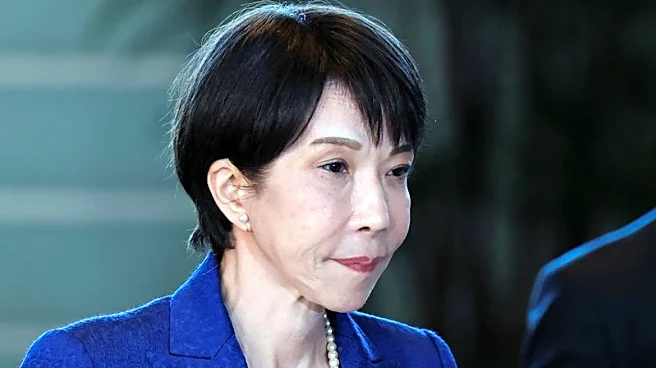What's Happening?
A report by the Resolution Foundation reveals that it would take the average UK earner 52 years of earnings to match the wealth of the richest 10%. The analysis, based on the Office for National Statistics' wealth and assets survey, shows a widening wealth gap since the global financial crisis. In 2006-08, it took 38 years of earnings to reach the top 10% wealth bracket, but by 2020-22, this had increased to 52 years. The report highlights the growing disparity in wealth accumulation, driven by passive gains such as rising property prices and pension valuations, which predominantly benefit older, property-owning households.
Why It's Important?
The findings underscore significant wealth inequality in the UK, with implications for social mobility and economic stability. The widening gap suggests that wealth accumulation is increasingly difficult for average earners, potentially exacerbating intergenerational divides. The report indicates that wealth mobility is low, meaning those born into wealth are likely to remain wealthy, while others struggle to ascend the economic ladder. This could impact public policy, prompting discussions on taxation, housing, and pension reforms to address these disparities and promote equitable wealth distribution.
What's Next?
The report may influence policymakers to consider measures aimed at reducing wealth inequality, such as revising tax policies or implementing housing reforms. Discussions around intergenerational wealth transfer and support for younger generations may gain traction. Economic stakeholders, including government agencies and financial institutions, could explore strategies to enhance wealth mobility and provide opportunities for wealth accumulation across different demographics. Public debates on wealth inequality and its societal impacts are likely to continue, potentially shaping future legislative agendas.
Beyond the Headlines
The report highlights ethical considerations regarding wealth distribution and social justice. The growing wealth gap may lead to increased calls for corporate responsibility and sustainable economic practices. Cultural shifts could emerge, with greater emphasis on community support and social welfare initiatives. Long-term implications may include changes in consumer behavior and investment strategies, as individuals seek to navigate the challenges posed by wealth inequality.










